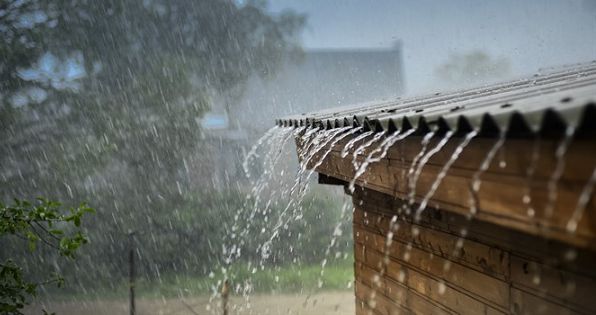The rainy season has started and one does not need to be a prophet to predict that in a matter of weeks, if not days, the media would start to report of floods and deaths.
This has been an annual ritual but as a people we never seem to learn from it to take preventive measures against it.
Many Ghanaians, especially within the national capital, Accra, continue to dump their domestic and solid waste materials into gutters and drains.
Some even dump such waste on the streets, bus bays, under trees, behind people’s homes or nearly bushes.
The end result is chocked drains that results in flooding when the rains start.
As a people, we know that the challenges are. We also know what the solutions are.
But we have spent the last decades pretending to be solving the problem when in actual practical terms we are only shifting blame and celebrating laziness.
City dwellers have not stopped blaming authorities for constructing shallow drains that are mostly uncovered.
City authorities have also not stopped blaming residents for building in water ways and indulging in habits that choke the already shallow drains.
While the blames game continues, precious lives and properties continue to go waste every year.
The messed up situation requires a multidimensional approach.
In the first place, successive governments, the current one included, have lacked the political will power to pull down all structures erected in water ways no matter whose ox gets gored.
The political leadership to take that decision has always considered their partisan interests first and the fact that it could cause the incumbent party some precious votes at the polls.
The New Publisher is yet to hear of the prosecution and jailing of a single local authority office holder who gave permit to a home owner or an estate developer to erect such buildings in water ways.
What then would be the deterrent factor to put a stop to the reckless granting of such permits.
Buildings do not spring up overnight therefore it beats the mind that city authorities claim they are unaware of when and how such structures get erected.
It is also sad that the general mindset of most residents about flooding, its causes and implications is bankrupt.
There is a general ‘I Don’t Care’ attitude among Ghanaians.
Perhaps the public education is poor and there is the need for a national reorientation on the whole subject of flooding and its implications on the economy and the health of the people.
As at now, we can only hope against hope that the impact of the rains would be minimal. But certainly, we brace ourselves for bad news.


Comments are closed.